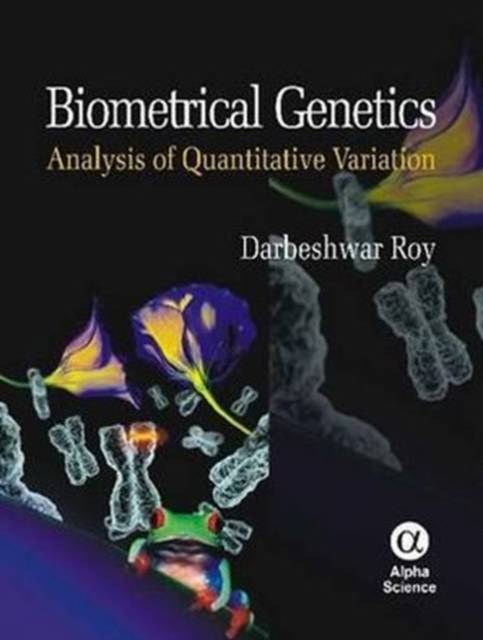
Bedankt voor het vertrouwen het afgelopen jaar! Om jou te bedanken bieden we GRATIS verzending (in België) aan op alles gedurende de hele maand januari.
- Afhalen na 1 uur in een winkel met voorraad
- In januari gratis thuislevering in België
- Ruim aanbod met 7 miljoen producten
Bedankt voor het vertrouwen het afgelopen jaar! Om jou te bedanken bieden we GRATIS verzending (in België) aan op alles gedurende de hele maand januari.
- Afhalen na 1 uur in een winkel met voorraad
- In januari gratis thuislevering in België
- Ruim aanbod met 7 miljoen producten
Zoeken
€ 103,45
+ 206 punten
Omschrijving
Biometrical Genetics: Analysis of Quantitative Variation describes the genetic analyses for working out the genetic architecture of quantitative traits. Providing an elementary outline for study, the book offers a brief description of both univariate and multivariate statistics. The genetic analyses include study of basic generations and the use of multiple mating designs such as BIPs, NC1, NC2, Diallel, NC3 and TTC. Variation arising due to linkage, epistasis, environment, maternal effect and sex linkage are also described in detail. Models of G x E interaction and competition and biometrical genetics of polyploids and haploid are discussed as well as biometrical genetics of heterosis and inbreeding depression and the method for calculation of inbreeding coefficient. Methods for estimation of heritability and number of effective factors, selection theory including path coefficient analysis and QTL analysis and models for estimating genetic parameters are all explained in entirety. H-W equilibrium and the evolutionary forces are also described in detail. This book also includes a chapter on matrix and biometrical problems which will support the carrying-out of practicals in this course. This book will be accomodating to undergraduate and post-graduate students, as well as teachers and researchers in the field of quantitative genetics and practical plant breeding.
Specificaties
Betrokkenen
- Auteur(s):
- Uitgeverij:
Inhoud
- Aantal bladzijden:
- 410
- Taal:
- Engels
Eigenschappen
- Productcode (EAN):
- 9781842657102
- Verschijningsdatum:
- 30/01/2012
- Uitvoering:
- Hardcover
- Formaat:
- Genaaid
- Afmetingen:
- 185 mm x 240 mm
- Gewicht:
- 950 g

Alleen bij Standaard Boekhandel
+ 206 punten op je klantenkaart van Standaard Boekhandel
Beoordelingen
We publiceren alleen reviews die voldoen aan de voorwaarden voor reviews. Bekijk onze voorwaarden voor reviews.









